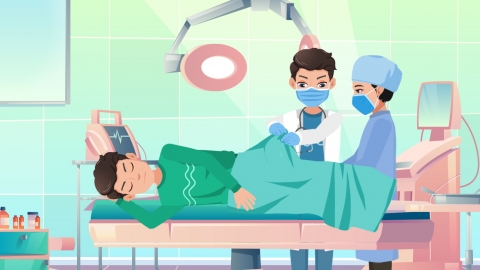What are the precautions for internal hemorrhoid surgery?
Precautions for internal hemorrhoid surgery include preoperative preparation, postoperative pain management, bowel movement care, wound care, and dietary adjustments. Following these guidelines properly can reduce the risk of complications and promote recovery after surgery. If persistent bleeding, severe pain, or fever occurs after surgery, prompt medical attention is recommended.
1. Preoperative preparation: Complete necessary tests such as routine blood examination and coagulation function before surgery to rule out contraindications. Maintain a light diet one to two days prior to surgery. Take laxatives as prescribed the night before surgery to cleanse the bowel and prevent contamination of the surgical site by intestinal contents during the procedure.
2. Postoperative pain management: When significant pain occurs after surgery, take analgesics as prescribed to avoid constipation caused by suppressing bowel movements due to pain. Do not increase medication dosage without medical advice to prevent adverse drug reactions. Inform healthcare providers promptly if pain worsens.

3. Postoperative bowel care: Avoid defecation within the first 24 hours after surgery. Thereafter, maintain regular bowel habits and avoid prolonged straining or sitting on the toilet. If bowel movements are difficult, use stool softeners or mild laxatives as directed by your doctor to prevent wound tearing, bleeding, or delayed healing caused by excessive straining.
4. Wound care: Keep the anal area clean after surgery. Wash with warm water or perform sitz baths after each bowel movement to prevent irritation from residual feces. Change dressings according to medical instructions and monitor the wound for signs of bleeding, redness, or swelling. Seek timely treatment if any abnormalities occur.
5. Dietary adjustment: Initially focus on liquid or semi-liquid foods after surgery, gradually transitioning to easily digestible soft foods. Increase intake of fiber-rich fruits and vegetables, drink plenty of water, and avoid spicy, greasy, or irritating foods to prevent constipation.
Light activities such as walking are encouraged after surgery; avoid prolonged sitting or standing. Maintain a regular sleep schedule and avoid staying up late. Perform anal sphincter exercises (Kegel exercises) at the same time every day to strengthen pelvic floor muscles, support wound healing, and restore anal function.




